Published
- 04:00 am
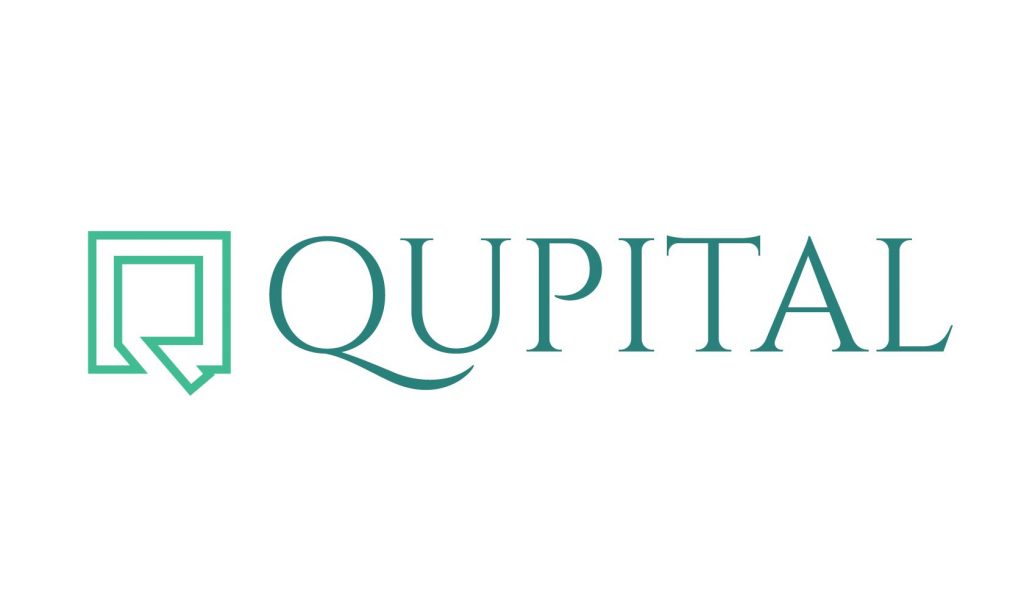
Asia’s leading e-commerce financing platform launches merchant financing securitization facility with Citi, first deal of its kind in Asia |
Asia's leading financial technology platform Qupital today announced it has raised US$150 million in a combination of Series B equity funding and a receivables-backed securitization facility. The equity funding will reinforce Qupital's ambitions to scale its cross-border e-commerce lending business into international markets and further strengthen its technological capabilities, whilst the facility will provide a lower cost of funding for Qupital to offer exclusive products to its present and future clients.
Qupital's Co-Founder and President Andy Chan with Co-Founder and Chief Executive Officer Winston Wong (from left to right)
Qupital's ambition is to become the go-to digital financial institution for e-commerce sellers trading across the globe in the New Economy.The securitization facility entered with global investment bank Citi, supported by Integrated Alternative Credit Fund, marks the first e-commerce merchant financing securitization in Asia. This coincides with the closing of Qupital's Series B round, led by the Greater Bay Area Homeland Development Fund (GBA Homeland), with additional capital injections from investors including the Innovation and Technology Venture Fund (ITVF) of the Hong Kong SAR Government, MindWorks Capital, Silverhorn and Alibaba Entrepreneurs Fund. Qupital harnesses the power of sales data to streamline credit underwriting for sellers on e-commerce platforms such as Amazon, eBay, Lazada and Shopee, offering a win-win solution to both sellers and investors. The platform empowers creditworthy merchants that are traditionally underserved in the commercial lending market, and hews out an alternative asset class with attractive yield opportunities for both professional and institutional investors. As of October 2021, Qupital has achieved over US$500 million in loan advancement to some 7,000 merchants onboarded on its digital platform, tracking an annualized gross merchandise value (GMV) of over US$3 billion. Series B round led by GBA Homeland Development Fund, joined by the ITVF of HKSAR Government On top of the Series B funding, Qupital's strategic placement within the GBA Homeland portfolio more importantly reflects the depth and breadth of its integration into the GBA ecosystem. As a global-scale alliance dedicated to promote the new economy in China's GBA, GBA Homeland's established network serves as a springboard for Qupital to augment local partnerships and on-the-ground knowledge to assist further expansion in the GBA and Greater China. With China cross-border e-commerce sustaining a 20% year-on-year growth, the rapid industry expansion renders extra confidence for Qupital to grow its customer base beyond its existing force which concentrates in Guangzhou and Shenzhen. UK-based Nordstar's e-commerce focused fund joins the round as a new investor. As a leading investment adviser focusing on international growth and scaling, Nordstar will lend its network to broaden Qupital's customer base in Western markets and share the team's expertise to expedite the company's global expansion. The majority of funds raised will be used to accelerate Qupital's core lending business to support e-commerce sellers. As part of its five-year plan, the company is set to tap into its abundant network and grow its "buy now, pay later" product model to build an all-encompassing marketplace tailored for B2B transactions. It will assign resources to enhance its R&D capabilities in terms of artificial intelligence, big-data technology and MLOps. The company also has plans to extend its footprint across mainland China, as well as international markets including Southeast Asia, North America and Europe. It expects to triple the size of its team by 2022 to support expansion needs. "This funding round reinstates the boundless synergy agglomerated in the region", said Winston Wong, Co-Founder and Chief Executive Officer of Qupital. "the GBA comprises multiple world-class manufacturing bases, where goods are produced and capital needs arise; this is where we step in as a solution to bridge the financing demand gap. It also reaffirms the unparalleled role of Hong Kong as an international financial hub – where innovations are met with opportunities to flourish. We believe Hong Kong will continue to play an indispensable role within the GBA as a financial powerhouse." "As we aspire to improve financial inclusion and increase global trade ultimately, we are committed to back SMEs that have limited access to capital. Being able to work with Citi on this credit facility has fueled our business with a stable pool of funds and improved cost of capital. It is the cornerstone for us to sharpen our product features, build exclusive relationships with clients and win over market share to gain even stronger foothold in the global market", said Andy Chan, Co-Founder and President of Qupital. "Our ambition is to become the go-to digital financial institution for e-commerce sellers trading across the globe in the New Economy." |
Related News
- 07:00 am
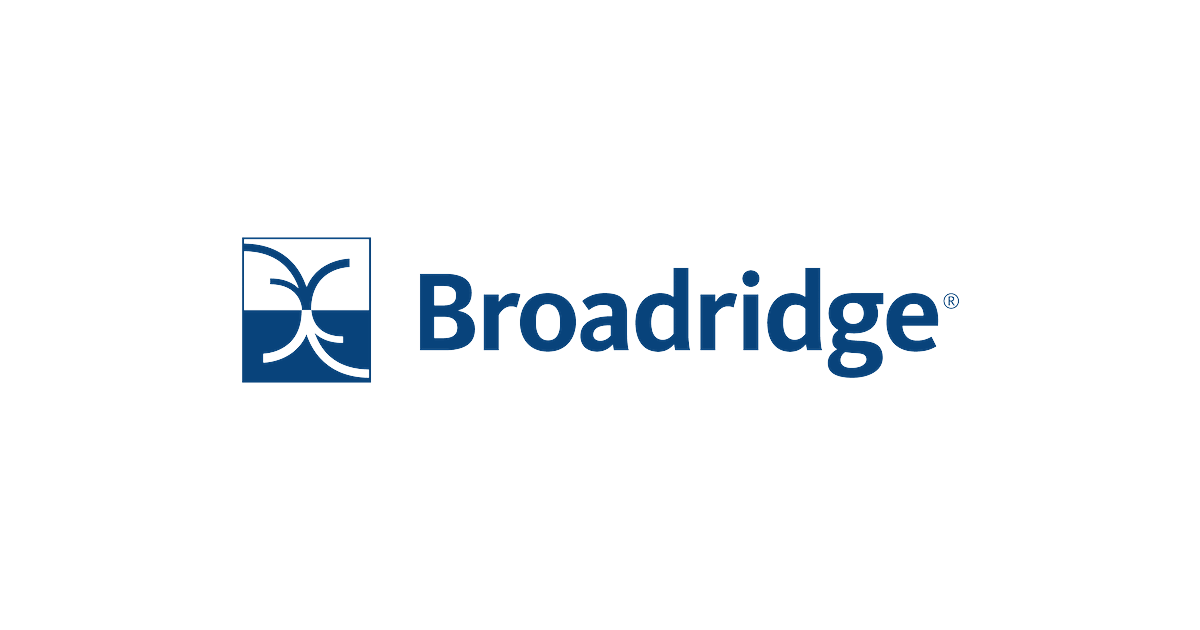
Broadridge has hired Trip Chong as Director of Business Development for its Securities Class Actions solutions. Trip joins Broadridge from specialist investor litigation monitoring, advisory and recovery firm, Institutional Protection, where she was Head of Strategic Partnerships. Trip worked closely with law firms, litigation funders and investor rights groups to help clients navigate the complex landscapes of international securities litigation.
Trip has over 13 years’ industry experience in securities group investor actions with a particular focus on international jurisdictions. She will be based in the United Kingdom and will be responsible for selling Broadridge’s Class Action solutions to markets outside of North America. Her previous leadership roles in business development, operations and client services have enabled her to build strong, long term relationships with institutional clients and industry partners, delivering the highest standard of services in the securities litigation arena.
“I am excited to welcome Trip to Broadridge. Her accomplishments, expertise, and industry experience in securities class actions are certain to be an asset to our company and our clients” says Manuel Baptista, Vice President, Head of Investor Communication Solutions International Sales at Broadridge. “Trip is a welcome addition to our team, and we look forward to her invaluable contribution”.
Related News
- 03:00 am
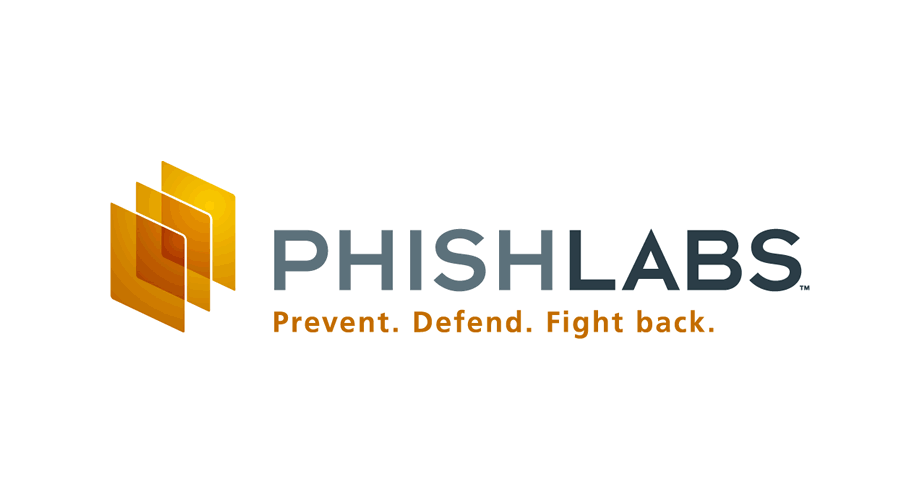
PhishLabs Threat Trends and Intelligence Report show attacks grow 31.5% year-to-date over 2020, with social media attacks continuing to climb; September more than doubles its phishing activity over the same month last year
PhishLabs by HelpSystems, the leading provider of Digital Risk Protection solutions, today released their Quarterly Threat Trends and Intelligence Report. Phishing remains the dominant attack vector for bad actors, growing 31.5 percent over 2020. Notably, attacks in September 2021 were more than twice as high as the previous year.
“While we saw a drop early this summer in phishing volume, threat actors didn’t take the whole summer off. Attacks have been on the rise since July and surged in September. If these trends continue, many IT security teams will find themselves dealing with a deluge of threats over the holidays,” says John LaCour, Founder and CTO of PhishLabs.
Additional key findings of the PhishLabs Quarterly Threat Trends and Intelligence Report include:
- Social Media Attacks Skyrocket in 2021: Since January, the average number of Social Media attacks per target climbed steadily, up 82 percent year-to-date.
- Vishing is Increasing: Vishing incidents more than doubled in number for the second consecutive quarter, suggesting a shift in tactics as threat actors seek to evade email security controls.
- O365 Users Beware: In Q3, 51.6 percent of credential theft phishing attacks reported by corporate users targeted O365 logins.
- PII Grows on the Dark Web, Leveraging Chat Services: The sale of Personally Identifiable Information accounted for 12 percent of dark web threats and was primarily made up of threat actors marketing employee email addresses to black market buyers. In 56 percent of PII sales, chat-based services were used to market the data.
“The continued climb in social media threats makes it imperative that businesses prioritise visibility across platforms such as Twitter, Facebook, Instagram, and more. As seasonal hiring ramps up for the holidays, the staffing industry in particular needs to be prepared to deal with online impersonation and other scams,” says LaCour.
PhishLabs analysed and mitigated hundreds of thousands of attacks targeting enterprise brands and employees in the Q3. The report uses this intelligence to determine key trends shaping the threat landscape.
PhishLabs Founder and CTO John LaCour will discuss key findings from the report in a webinar today at 2 p.m. ET. Attend the webinar live or watch on-demand at this link.
The PhishLabs Quarterly Threat Trends and Intelligence Report is available to download here.
Quarterly Threat Trends and Intelligence - November 2021 (phishlabs.com)
Related News
- 03:00 am

Banks worldwide embrace new technologies and branch strategies in response to changing customer behaviour and expectations
The demand for self-service continues to rise
RBR’s report Branch Transformation 2021 reveals key trends in customer behaviour which help to shape and drive branch transformation initiatives around the world. One notable trend is the ongoing shift away from the teller counter to self-service channels. In response to this change, banks are offering a wide range of self-service options, from the traditional ATM to non-cash kiosks. Kiosks can perform a variety of functions, such as bill payment or card issuance, and are present in the majority of the 24 markets covered in the report.
Self-service devices are often located in bank lobbies which are accessible after banking hours for customers’ convenience. As demand for self-service continues to rise, the creation of these lobbies has become central to many banks’ branch transformation schemes. Société Générale in France, for instance, has been remodelling its branches to include self-service spaces with extended opening hours to benefit people who finish work late.
Customers expect personalised services
Tailored experiences for online shopping and streaming services are increasingly the norm and the study reveals that this expectation of personalisation even extends to banks. To cater to this demand, some banks look to redefine the teller role, placing more emphasis on building customer relationships. This is aided by the shift towards self-service, which frees tellers from performing traditional over-the-counter transactions.
New branch layouts are used to foster stronger relationships. Open-plan branches – in which bulletproof glass and teller counters have been removed – allow customers and staff to engage more easily. Some banks in Russia are even moving towards a deskless model in which staff-customer interactions take place side-by-side in informal seating areas.
COVID-19 made crowding a key issue
To further improve the branch experience, many banks make use of technology to reduce queues and minimise in-branch crowding. Self-service appointment scheduling is available at self-service terminals in over half of the markets RBR examined. Once inside the branch, customers can often direct themselves to the correct area using interactive signage. A small number of banks even make use of welcome robots to direct customers, such as China’s Bank of Communications in its flagship branches.
During the COVID-19 pandemic, concerns about the transmission of the virus made crowding an issue of hygiene as well as convenience, placing new relevance on queue management technologies. The demand for social distancing highlights the fluidity of customer expectations and the need for banks’ continued adaptability.
Emily Beeby, who led RBR’s Branch Transformation 2021 research, remarked: “Although branches vary by market and bank, they are united by the desire to serve the customer in the way they want to be served. This means that as customer behaviour continues to change, we can expect branches to evolve, implementing new strategies and adopting new technologies.”
Related News
- 01:00 am

The joint venture will empower the finance company to quickly and seamlessly detect fraudsters through SEON’s Intelligence Tool
SEON, the fraud fighters, today announces its partnership with Creditstar, the short-term loan providers. By joining forces, SEON will enable Creditstar to utilise its Intelligence Tool for data enrichment, improving KYC processes, and mitigating financial losses through fraud detection.
The Intelligence Tool scans open-source databases to gather additional information about users based on factors such as email address, phone number or IP address. The phone API aggregates data sources, including social media accounts, to confirm identities and flag suspicious users. By integrating the Intelligence Tool, Creditstar will improve the performance of credit risk assessments, and unlock a wealth of additional data about any potential customers which will in turn reduce time spent tracing applicants to confirm their identity. This will serve to improve business results for Creditstar, including streamlining processes and improving the quality of its client portfolio. Ultimately, this will mean the cost of credit loss is lowered so the company can offer more attractive prices and conditions to its customers.
Speaking about the announcement, Aleksei Moronov, Head of Credit Risk at Creditstar, said: “Although relatively new, our partnership with SEON has already shown to be valuable to Creditstar, bolstering our KYC processes, providing rich data capture tools, and equipping us with the intel we need to be able minimise any risk of fraud and to recover debt.”
He added: “SEON came recommended to us by a mutual partner, and they haven’t fallen short of expectations at any point during the onboarding process, their communication with our team was seamless and it has been a smooth integration for our team. Not only that but we have been impressed at the flexible nature of their offering, which has enabled us to select a service that suits our needs exactly.”
Tamas Kadar, CEO and Co-Founder at SEON, said: “Finance companies are at risk of fraudsters taking advantage of account takeovers, pretending to be someone they’re not, in order to take out loans against their names. We firmly believe in preventing fraud where possible, rather than simply reacting to it, which is why we’re delighted to be able to appropriately equip Creditstar with the tools it needs to spot any such players and minimise the risk of what could be significant financial losses.”
To learn more about SEON and the services it provides, visit: https://seon.io/
Related News
- 03:00 am
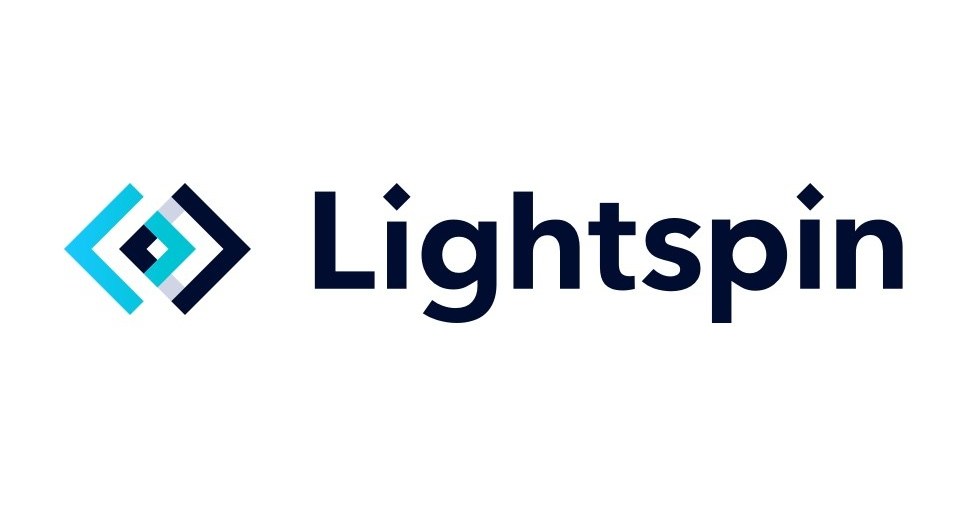
Lightspin, the leader in next-generation Cloud Security Posture Management (CSPM), announced the addition of four strategic executive members to its advisory board and board of directors: Guarav Kumar, Srinath Kuruvadi, Steve Pugh, and Ron Zoran. The new members each have an established track record as industry CISOs and cloud security experts and will play key roles advising the company on both technology and business strategies.
“We’ve seen strong demand for our technologies that simplify cloud security by surfacing the most critical threats first. To meet that demand, we’re building the board we need to scale efficiently and effectively,” said Vladi Sandler, Co-founder and CEO of Lightspin. “Guarav, Srinath, Steve and Ron bring deep C-level experience driving the market growth of cybersecurity companies that will inform our strategy and execution in building the next generation of security posture management.”
The new board members include:
Guarav Kumar – Angel investor and advisory board member, Guarav is Founder and CEO of Dassana, previously Chief Architect at Palo Alto Networks and the Founder & CTO of RedLock with over 15 years of experience in building security systems. “Lightspin’s approach to cloud security is one of the most cloud-native approaches I have ever seen,” said Guarav Kumar. “The platform understands the cloud context which I am most passionate about, and I am excited to be part of their journey.”
Srinath Kuruvadi – Angel investor and advisory board member, Srinath is Head of Cloud Infrastructure Security at Netflix. He has 15+ years of experience in security and privacy with a strong background in software engineering applied to large scale cloud environments and he is the owner of one patent with three other patents pending. According to Srinath Kuruvadi, “DevOps needs attack-path context to bring down security risks and Lightspin is uniquely positioned to deliver an end-to-end solution focused on risk-based ROI.”
Steve Pugh – Advisory board member, Steve is CISO of Intercontinental Exchange, Inc. (NYSE: ICE), Pugh previously served as the former CISO of the White House Military Office and has more than 25 years of experience in cybersecurity, national security, and intelligence, and most recently was the Chief Security Officer for Twilio. “I love Lightspin’s ‘attacker approach’ to traditional vulnerability scanning,” commented Steve Pugh. “It provides the best context to help defenders have the biggest impact.”
Ron Zoran – An independent board member, Ron is a board member at several security companies including Cynet, CyberX, Intezer and IntSights (recently acquired by Rapid7), Ron was previously the CRO at CyberArk. “Cloud stack vulnerabilities are quickly becoming the soft underbelly of free world organizations,” said Ron Zoran. “Lightspin offers a unique technology, designed to eliminate those attack vectors, with minimal effort. I’m excited to join and help the team with the mission to deliver unparalleled security to their customer base."
The expansion of Lightspin’s board follows exceptional market growth. Leading midsize to Fortune 500 companies rely on Lightspin to secure their cloud including Genesis and Berlitz.
Related News
- 04:00 am
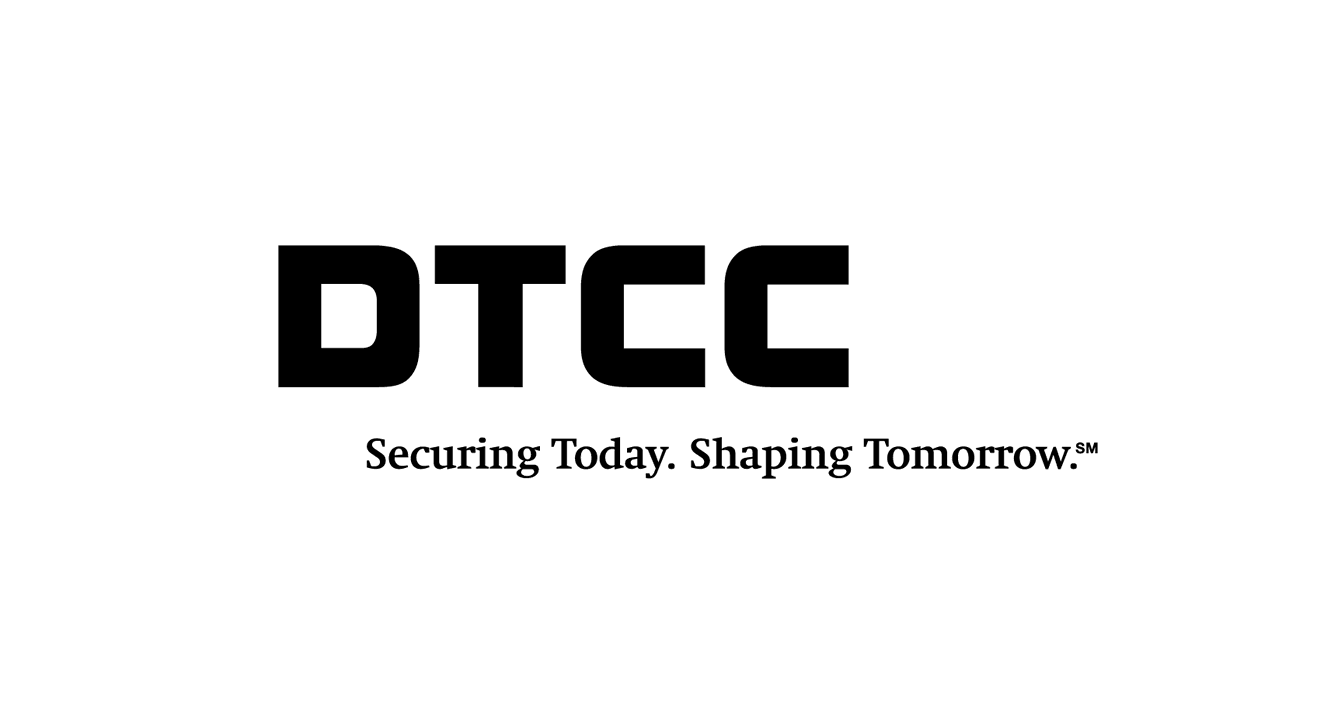
The Depository Trust & Clearing Corporation (DTCC), the premier post-trade market infrastructure for the global financial services industry, today announced a new platform to streamline the issuance, transfer and servicing of private market securities. As described in a new industry report, “Digital Securities Management: Bringing Private Markets Infrastructure Into the 21st Century”, DTCC’s new Digital Securities Management (DSM) platform will, subject to regulatory approval, for the first time, provide an industry-wide solution that offers common market infrastructure and standards across private markets. The platform represents the next major milestone in DTCC’s efforts to bring automation, standardization and efficiency to the private markets, building upon its Project Whitney case study.
DSM will offer access to participants through both central and distributed infrastructure, leveraging a cloud-based architecture to enable the book entry recordkeeping of securities as well as support the burgeoning digital asset ecosystem by providing the option to create tokenized representations of a security.
“DTCC has a long history of innovating to make the global financial services industry more efficient, and we continue to explore new and emerging technologies to support the digitalization and tokenization of assets,” said Michael Bodson, DTCC President and CEO. “The DSM platform offers a unique opportunity to implement new technology and streamline processes in the private markets while relying on the secure and resilient infrastructure that we have long provided for the public markets."
The new DTCC DSM platform will support securities through their full life cycle, and will provide broad benefits to the entire private market ecosystem including:
- reduced operational costs through standards and increased automation, including security identifiers;
- electronification of transfer restriction approvals;
- gross settlement as early as T+1; and
- cost mutualization of non-differentiated services, such as centralized stock record keeping and codification of transfer restrictions.
Further, DTCC is exploring the ability for broker-dealers to hold customer assets while relying on DSM as a “Good Control Location” for both traditional and tokenized representations of securities, subject to regulatory consideration and approval.
From launch, DSM will optimize primary issuance and transform secondary markets, creating new business model and distribution opportunities for participants while facilitating a digital asset ecosystem. Architected to be blockchain agnostic, DSM will initially interface with the Public Ethereum Network, but will incorporate additional public and private blockchain support based on client and market demand.
“DSM is capable of transforming the private markets, unifying an increasingly fragmented space under a common infrastructure that can automate manual processes, reduce costs and risks, and open up more opportunities for investors,” said Jennifer Peve, Managing Director, Head of Strategy and Business Development at DTCC. “DSM is the culmination of a hugely collaborative effort with our clients, industry representatives and other key stakeholders, whose feedback was critical in developing a solution to modernize, digitalize and ultimately transform the private market ecosystem.”
The DSM platform will initially support pre-IPO equity securities, and will expand into other markets, positioning it to become the platform of choice for funds, debt, real estate, loans and other private instruments that are underserved today from a market infrastructure perspective.
DTCC is currently in the production build phase of the DSM platform and, subject to final regulatory approval, is expected to launch the service in early 2022.
Related News
- 02:00 am
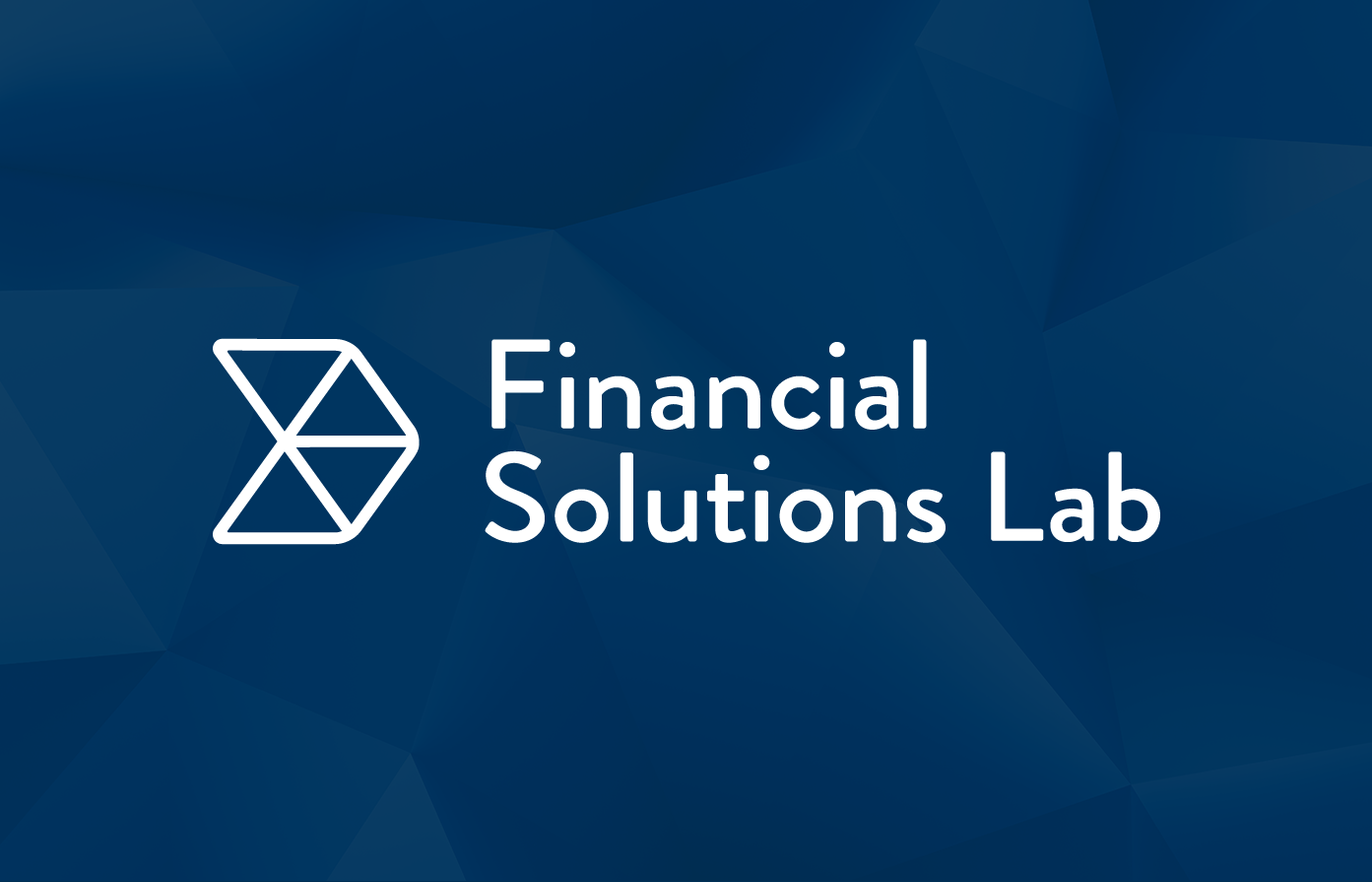
The eighth Accelerator program is now accepting applications from financial technology companies and nonprofits creating innovative solutions to expand access to financial health benefits and tools.
The Financial Solutions Lab, an initiative from the Financial Health Network in collaboration with JPMorgan Chase and Prudential Financial, announced today its eighth accelerator Challenge. The Accelerator seeks applications from financial technology companies focused on helping low- to moderate-income (LMI) and Black and Latinx communities expand access to benefits and financial tools that help them to maintain key safety nets and improve their financial health. For more information on our next Challenge and how to apply, visit our website. Applications are due December 20, 2021.
Almost two years into the pandemic, U.S. consumer financial safety nets continue to be challenged.
- U.S. households with annual incomes less than $30k are more than twice as likely to be financially unhealthy than higher-income households, leaving many families behind on paying bills such as rent and mortgage payments, prioritizing immediate financial needs over planning for the future.
- While public supports such as stimulus payments and child tax credits have had a positive immediate impact on LMI and Black and Latinx communities’ liquidity, systemic barriers continue to prevent these communities from building and maintaining long-term financial health.
The economic impacts of the pandemic have taken a higher toll on communities of color, particularly Black and Latinx communities, who face depleted emergency savings, experienced the greatest job losses in frontline jobs, are managing rising healthcare costs, and have limited access to workplace retirement savings plans. For example:
- Low-income Black and Latinx families and women of color experienced the fastest depletion of their cash balances gained during COVID.
- Black Americans seeking unemployment benefits are approved 73% of the time compared to 80% for White Americans.
- 52% of Black and 68% of Latinx Americans do not currently have access to a workplace retirement plan versus just 40% for White Americans.
This year’s Accelerator will be focused on addressing these gaps and identifying innovative solutions helping LMI and Black and Latinx communities to better navigate and benefit from the existing web of financial health benefits, products, and tools.
“Too often, accessing benefits requires consumers to navigate complex systems and option sets, many with opaque terms, extensive requirements, and limited accessibility,” said Hannah Calhoon, vice president, Innovation, Financial Health Network. “There is a great need and potential for innovative solutions improving user experiences that make financial health benefits and tools more accessible.”
Solutions relevant for this year’s Accelerator cohort include, but are not limited to:
- Optimization of public and private benefit experiences and tax system navigation
- Enhanced enterprise and consumer applications to manage healthcare costs and decisions
- Affordable services to help address obligations within the legal system
- Stronger resources and safety nets to protect against income volatility and economic shocks
- Improved access to retirement preparation and navigation tools
Interested fintech startups should apply to the Financial Solutions Lab Accelerator by December 20, 2021. The program will prioritize founders and teams with lived experience of the issues they are addressing, and companies demonstrating a commitment to operationalizing Diversity, Equity, and Inclusion principles within their organization. Pre-seed and seed stage startups are encouraged to apply.
“Fintech innovation has the potential to support consumers navigating complex financial and social systems that help build financial health, especially for those who have suffered most during the pandemic - Black and Latinx communities,'' said Sarah Willis Ertur, director of Financial Health, JPMorgan Chase. “These solutions align to the goals of JPMorgan Chase’s $30 billion racial equity commitment, working to tackle major barriers to wealth creation and an inclusive recovery.”
Each selected organization will receive up to $100,000 from the Financial Health Network; product and user behavioral insights to help inform development and market strategy; guidance to navigate the legal and regulatory fintech environment; insights on impact and customer financial health measurement; resources for external marketing and communications; mentorship from financial services and financial health experts; support to further diversity, equity, and inclusion; and more.
“With nearly half of Americans struggling with financial hardship resulting from the pandemic, we need to do more to ensure equal access to financial tools and systems, especially for the most vulnerable,” said Sarah Keh, vice president, Prudential Inclusive Solutions. “There is tremendous opportunity for innovative solutions to help fill the gaps in our social safety net and give people the flexibility they need to continue to build financial health.”
Related News
- 06:00 am
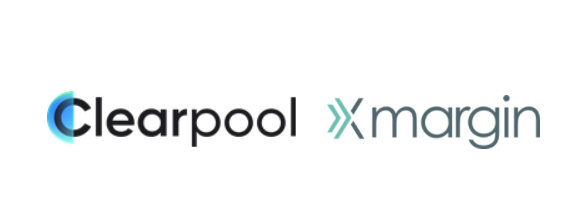
- Partnership to unlock uncollateralized credit for institutional crypto trading, using Clearpool’s innovative protocol mechanics
- Tokenized credit to open up secondary market and new products such as credit derivatives
Clearpool, a decentralized capital markets ecosystem, is partnering with X-Margin, the platform facilitating credit to trading firms, to enable institutions to borrow from their own dedicated and transparent lending pool.
Clearpool will integrate X-Margin’s privacy preserving technology to measure and publish institutional borrower creditworthiness, enabling borrower pools to present an accurate risk score without revealing sensitive information. The partnership will enhance capital access for creditworthy institutions trading digital assets, while providing lenders with data that enables informed capital allocation across a diverse selection of borrowers.
Robert Alcorn, CEO of Clearpool, said: "We’re opening up credit in the DeFi space, enabling borrowers to improve capital efficiency. Our partnership with X-Margin will be the catalyst to data-driven credit markets and the development of exciting new instruments such as credit derivatives. It’s a major advance in the maturity of crypto and DeFi markets.”
The partnership allows institutional borrowers to access lenders via a dedicated pool, and justify their credit by providing privacy preserving and neutral credit risk metrics. Tokenizing the credit provided to the pool will enable lenders to manage credit risk more actively, and the data provided by X-Margin lays the foundation for a robust secondary market.
Clearpool is building a revolutionary decentralized capital markets ecosystem powered by its native token (CPOOL) where institutional borrowers can access unsecured liquidity and is the first dynamic marketplace for unsecured institutional capital. Merging the sophistication of traditional capital markets with the benefits of decentralization, Clearpool significantly improves the landscape for both borrowers and lenders.
Borrowers on the Clearpool protocol, typically institutions, can access unsecured liquidity, and eliminate risks of liquidation, significantly enhancing capital efficiency. Lenders (liquidity providers/LPs) on the Clearpool protocol, typically individual or institutional investors, are rewarded fairly for risk taking, with pool interest rates rising when risk increases, and falling when risk decreases. Clearpool lenders earn further rewards in the form of CPOOL tokens, enhancing overall APYs to market-leading levels.
Clearpool is backed by a long list of top investors from both traditional venture capital and blockchain including Sequoia Capital India, Arrington Capital, Sino Global Capital, Hex Trust, Huobi Ventures, Kenetic, HashKey, and many more. Several of the top crypto trading institutions are also investors including Wintermute and Folkvang Trading.
X-Margin Credit is a complete platform for counterparty due diligence, encompassing KYC, financial statement analysis, and real-time risk monitoring across borrower portfolios. Lenders gain security through X-Margin Credit’s increased visibility of risk and through optional programmatic governance of funds. Among its users are Ledger Prime, Dunamis Trading, GSR and Wintermute Trading.
Darshan Vaidya, CEO of X-Margin, said: “We share with Clearpool the same vision for managing credit risk and we’re particularly excited about how our partnership with Clearpool can play a key part in tokenizing credit, allowing a new market to develop. Giving lenders visibility and control over their credit risk will open up the access to capital in the digital asset space, and in turn lead to a more efficient and liquid market.”
Related News
- 09:00 am

Female Invest, is an EdTech platform and community which, through approachable subscription-based e-learning, empowers women by increasing their understanding of personal finance and investing. Female Invest has members across 67 countries (with the UK being the fastest growing market) and an online community of 150,000+ women.
In October 2021, Female Invest closed a 3.3 million GBP funding round from a syndicate of prominent investors including Y Combinator and Dr. Fiona Pathiraja. At a time where less than 2% of funding goes to female founded companies, Female Invest is shattering the glass ceiling in multiple arenas.
Female Invest - Developed By Women For Women
Female Invest was founded in 2019 by Emma Due Bitz (26), Camilla Falkenberg (28), and Anna-Sophie Hartvigsen (27), and inspired by their own experiences of attending personal finance educational events at which women were largely absent, and their subsequent discovery of the unaddressed gender disparity in investments and savings.
All three co-founders were named in the Forbes 30 Under 30 list for 2020, and in the same year, the company was the winner of the world’s largest start up competition, Cartier Women’s Initiative, and the prize of 100,000 USD.
At a time when 70% of stocks are owned by male investors (1 in 5 British women admitting to having never held stocks), and female workers retiring with around £70,000 less in their pensions than men (Nest survey - Oct 2020), Female Invest aims to close the gender investment gap by providing a space in which women can acquire the skills necessary to control their own capital and obtain financial independence. What’s more, according to analysis by Warwick Business School, women who do take the plunge outperform men when it comes to investment returns, making the need for a company run by women, for women, that approaches finance in a fun and authentic way, all the more pertinent.
Female Invest co-founder, Anna-Sophie Hartvigsen, explains the rationale underpinning the platform: “Women are falling financially behind in every single country in the world. They are earning less, saving less and then - with what money they have - they are investing less. Our job at Female Invest is to close that gap as quickly and helpfully as possible.”
Co-founder, Camilla Falkenberg, outlines the need to reinvent the paradigm of how young women experience financial advice: “When it comes to money-saving insights, the internet is filled with sites which advise young women on how to save money on beauty, clothes, food and going out. Yet, when it comes to making money, there is almost nothing on helping women make their money grow through investments. Female Invest fills this gap”.
Yet Female Invest intends to achieve more than just financial education. Co-founder Emma Due Bitz, who worked as a certified stockbroker from the age of 20, explains that a byproduct of the platform should be to contribute to the demystification of the world of investments: “The financial industry has traditionally been dominated by men. This is reflected in every aspect of it: from communication style to the corporate culture and product offerings. While this is not done with the intention to exclude women, it effectively does just that.”
How it works
Female Invest is a subscription based learning platform. When signing up, members get access to extensive learning courses with everything they need to make the most of their money. The platform currently has 27 video courses, 18 master classes, a written knowledge bank, weekly webinars with expert speakers and a community page where members can connect with each other.











